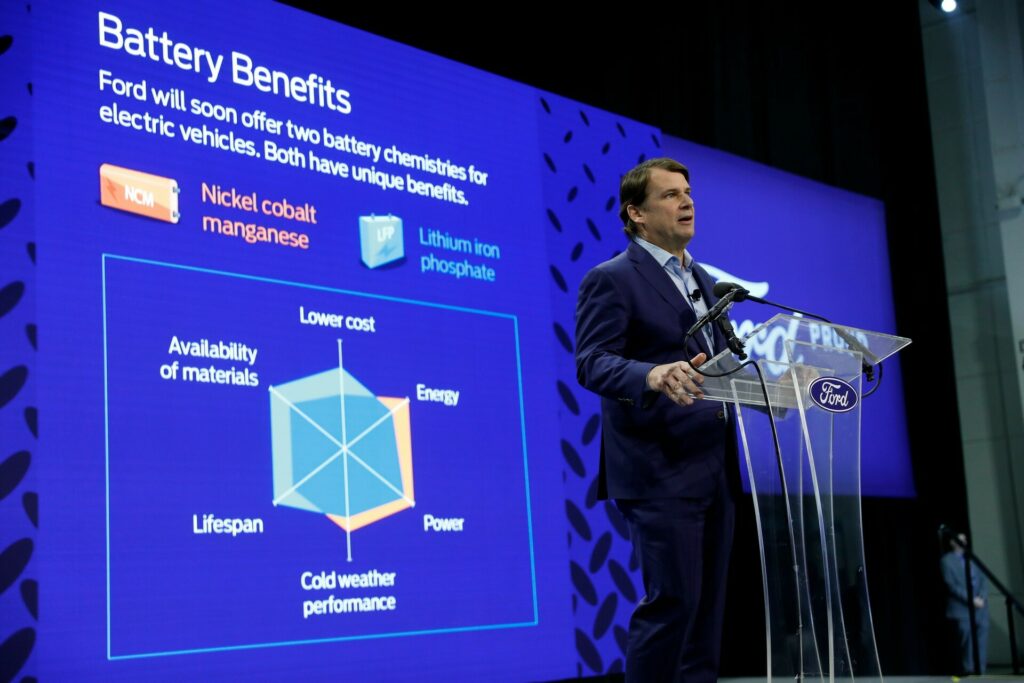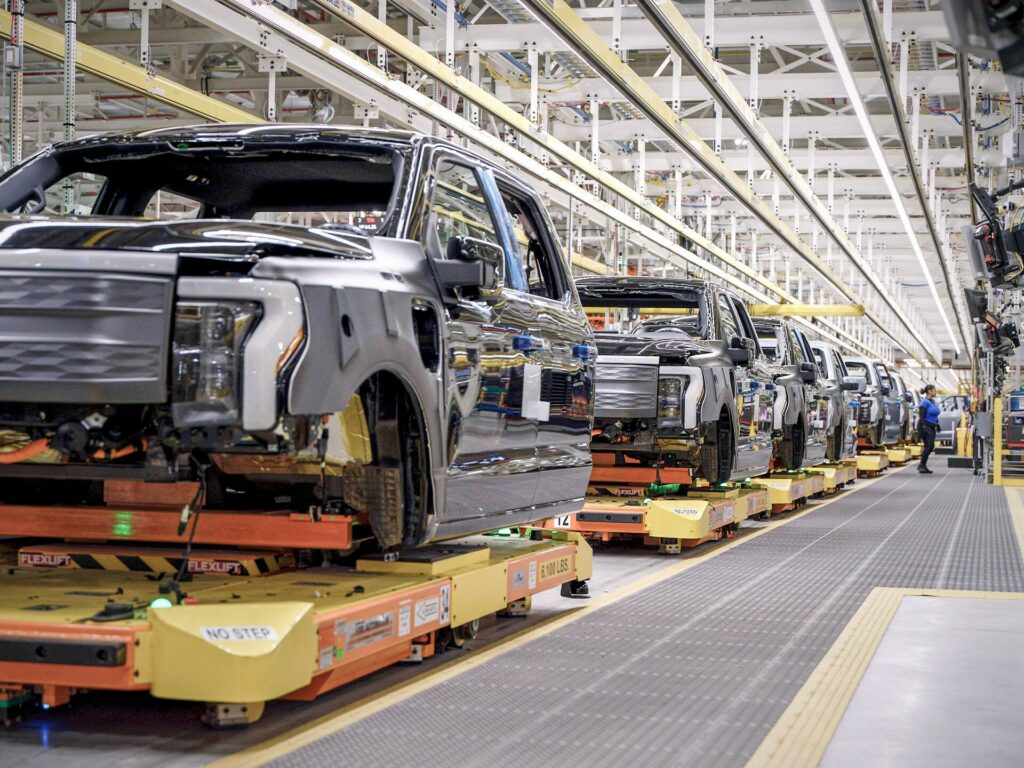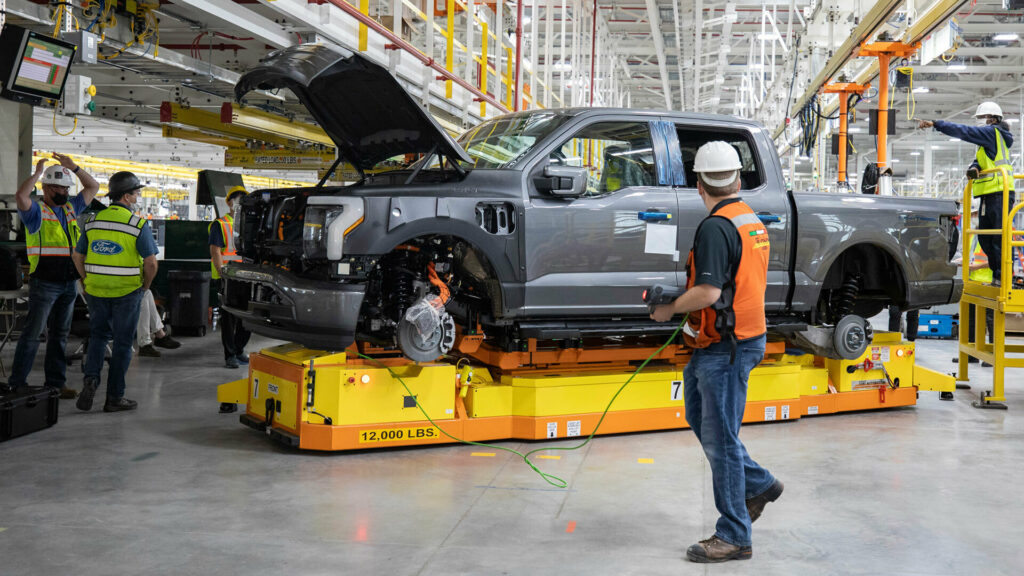Earlier this year, Ford announced plans to invest $3.5 (£2.8 / €3.3) billion into a lithium iron phosphate (LFP) battery plant in Marshall, Michigan. Known as BlueOval Battery Park Michigan, the facility was slated to begin production in 2026 and employ 2,500 people.
At the time, Ford said the plant would add approximately 35 gigawatt hours of new battery capacity annually and be capable of powering approximately 400,000 EVs. While connections to China’s CATL sparked backlash in the rural community of less than 7,000 people, the plant seemed set in stone.
Fast forward to Monday and Ford abruptly slammed on the brakes. In a statement to The Detroit News, a spokesperson said “We’re pausing work and we’re going to limit spending on construction at Marshall until we’re confident about our ability to competitively run the plant.” The spokesperson then said “We haven’t made a final decision about the investment there,” suggesting the plant could be in jeopardy.
More: Ford Opening $3.5B Michigan Battery Plant With Chinese Tech

While the automaker didn’t elaborate, UAW President Shawn Fain didn’t hold back as he called the move a “shameful, barely veiled threat by Ford to cut jobs.” He went on to say “Closing 65 plants over the last 20 years wasn’t enough for the Big Three, now they want to threaten us with closing plants that aren’t even open yet.”
The move comes shortly after the union decided not to expand their strike against Ford as the two sides made “substantial progress in bargaining.” However, given the latest development, it will be interesting to see how the UAW responds.
While it seems like the plant could be used as leverage, Ford executive chairman Bill Ford previously said “We are committed to leading the electric vehicle revolution in America, and that means investing in the technology and jobs that will keep us on the cutting edge of this global transformation in our industry.”





